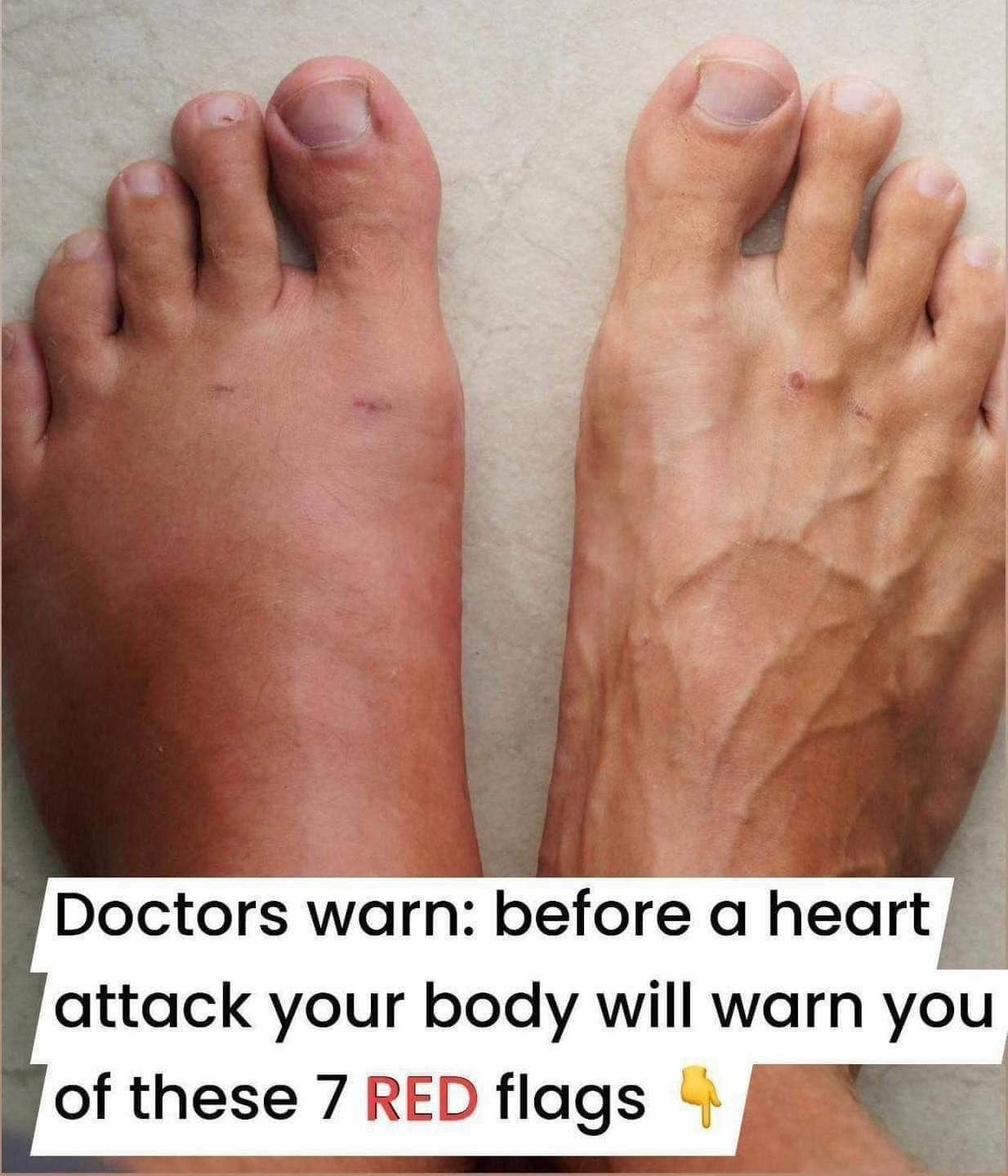Heart problems often develop quietly, and recognizing early signs can save lives. Many symptoms are subtle, especially in women, and may be mistaken for fatigue, stress, or digestive issues. Here’s what to watch for and why paying attention matters.
1. Feeling Exhausted Despite Rest
Constant fatigue — even after a full night’s sleep — can signal that your heart isn’t pumping efficiently. When blood flow decreases, your heart has to work harder, leaving you drained.
✅ Tip: If you feel unusually tired without explanation, schedule a heart check.
2. Shortness of Breath
Difficulty breathing during everyday activities like walking or climbing stairs can be an early warning sign. Shortness of breath may occur with or without chest pain and often indicates the heart is struggling to pump blood efficiently.
✅ Don’t ignore sudden or worsening breathlessness — it deserves medical evaluation.
3. Chest Discomfort or Pressure
Heart-related pain isn’t always sharp. It may feel like fullness, squeezing, or pressure, often triggered by activity and relieved by rest. Many people mistake it for heartburn.
✅ Recurring chest sensations should never be ignored. See a doctor promptly.
4. Pain in Other Areas
Discomfort from heart issues can radiate to other parts of the body, such as:
-
Left arm
-
Neck
-
Jaw
-
Back
This “referred pain” occurs when the heart sends signals that the brain interprets in nearby areas.
✅ Unexplained pain, especially during exertion, warrants a checkup.
5. Dizziness or Lightheadedness
Feeling faint, dizzy, or lightheaded can signal irregular heart rhythms or poor blood circulation. Symptoms may appear while standing or during activity and often indicate low blood pressure or arrhythmias.
✅ Frequent lightheadedness should be evaluated by a healthcare professional.
6. Swelling in Legs, Ankles, or Feet (Edema)
Fluid buildup from poor circulation or early heart failure often presents as swelling, typically worse at the end of the day. Persistent edema may also indicate kidney or liver issues.
✅ If swelling occurs along with other symptoms, see a doctor promptly.
7. Sleep Disturbances
Heart strain or sleep apnea can cause waking up gasping, shortness of breath, or frequent nighttime urination. Restless sleep may be an overlooked clue of underlying heart problems.
✅ Don’t dismiss poor sleep — it could signal heart issues.
Controllable Risk Factors
Some risk factors can be managed to reduce heart disease risk:
-
High blood pressure: Reduce salt, exercise regularly, take medications as prescribed.
-
High cholesterol: Eat fiber-rich foods, avoid trans fats, discuss statins with your doctor.
-
Diabetes: Maintain stable blood sugar through diet and medication.
-
Smoking: Quitting is the #1 preventable way to protect your heart.
-
Sedentary lifestyle: Aim for 30 minutes of walking, 5 days a week.
-
Stress & poor sleep: Practice mindfulness, therapy, and prioritize rest.
When to See a Doctor 🚨
Seek medical attention if you notice:
-
New or unexplained symptoms lasting several days
-
Fatigue, swelling, and breathlessness occurring together
-
Chest pressure or pain with activity
-
Family history of early heart disease
🩺 Simple tests like an EKG, blood test, or echocardiogram can detect problems early.
Prevention Is the Best Medicine
-
Eat a heart-healthy diet: Focus on Mediterranean-style foods — vegetables, whole grains, fish, and olive oil.
-
Move daily: Even walking helps maintain heart health.
-
Know your numbers: Track blood pressure, cholesterol, and blood sugar.
-
Get annual checkups: Especially important if over 40 or high-risk.
-
Listen to your body: Don’t ignore unusual or “weird” symptoms.
Final Thoughts
Your heart doesn’t always scream for help — sometimes it whispers. Paying attention to these subtle signals, taking preventive measures, and getting timely medical care can make all the difference in protecting your heart health. ❤️



